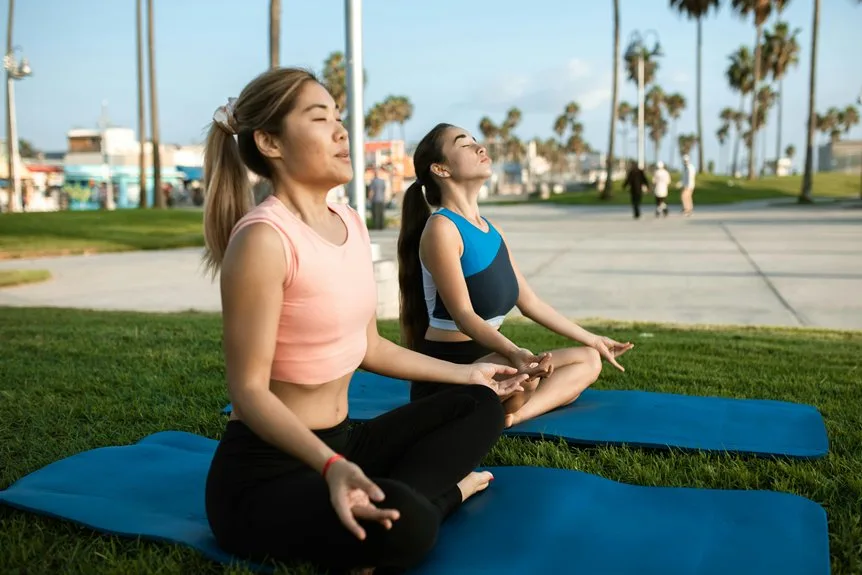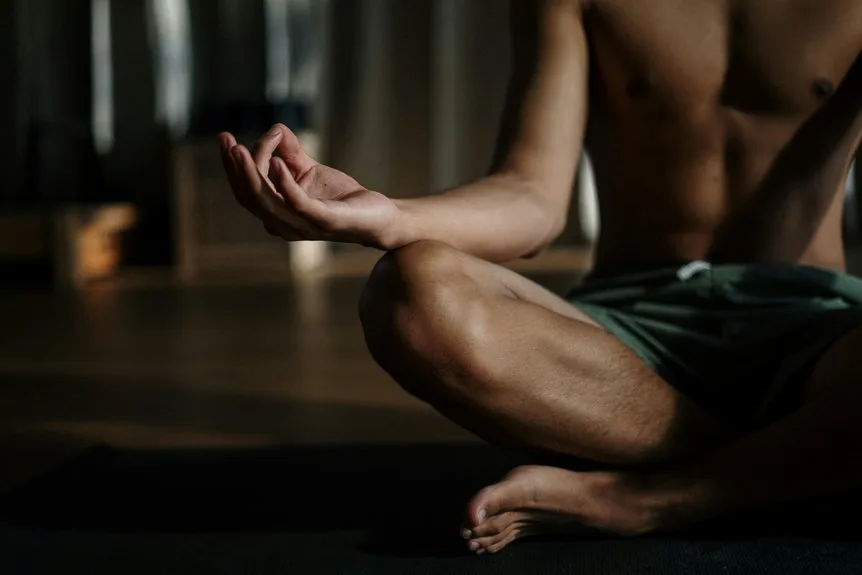Stress can sneak up on anyone, but a few simple routines might make it easier to handle. Visualize a steady morning walk, a journal by the bed, or even a quiet moment with a warm cup of tea—these small habits can work wonders for the mind and body. Whether it’s setting boundaries or exploring calming places, choices like these can shape a calmer life. But which routines truly stand out, and why do they work so well?
Building Healthy Habits for Mind and Body
Ever wondered why some days just feel easier than others? It often comes down to the self-care routines people choose for stress management and mental wellbeing. Simple habits, like setting consistent sleep schedules, play a big part in enhancing mental health.
Regular physical activity, even a brisk walk, releases positive physical energy and helps lower stress. Balanced meals full of fruits and whole grains also support emotional balance.
Relaxation techniques—like mindful breathing or quick meditation—help calm the mind. Journaling and clear boundaries add a sense of control, making it easier to help yourself and others feel connected and supported. For a more immersive self-care experience, consider visiting a luxurious destination like the Kenwood Inn and Spa, which offers amenities designed to rejuvenate both body and mind.
Strengthening Emotional Resilience
How do some people seem to bounce back from tough days while others feel weighed down? The secret often lies in emotional resilience. Building this strength means practicing emotional awareness, like through regular journaling, to understand feelings.
Mindfulness and meditation help keep reactions calm and steady. A strong support network and healthy social connections are key for stress management, offering a sense of belonging.
Positive thinking and gratitude shift focus to life’s brighter sides, while setting healthy boundaries protects energy. Each of these steps builds emotional strength, making it easier to face challenges together and feel less alone in the process. Additionally, taking time to unwind at places like Wilbur Hot Springs, known for its nurturing environment and natural hot springs, can enhance relaxation and rejuvenate the mind and body.
Everyday Strategies for Sustainable Stress Relief
While everyone faces stress, weaving practical self-care strategies into daily routines can make a big difference in how those pressures are handled. Just 10-15 minutes of physical activity, like a brisk walk or simple yoga, can enhance emotional well-being and offer real stress relief. Combining this with a healthy diet full of fruits, vegetables, and whole grains supports mental health, keeping energy steady. Short mindfulness breaks—maybe a few deep breaths or a quick meditation—help clear the mind. A solid sleep routine and time for relaxation or social support from friends make self-care feel less like a chore and more like belonging. For those seeking a more immersive experience, wellness retreats in California provide an opportunity for deeper relaxation and rejuvenation.
Frequently Asked Questions
What Are the 5 R’s of Stress Management?
The 5 R’s of stress management—Recognize, Reframe, Relax, Respond, and Replenish—integrate mindfulness meditation, deep breathing, progressive relaxation, journaling prompts, nature walks, aromatherapy tips, gratitude exercises, creative hobbies, sleep hygiene, and digital detox practices.
How to Practice Self-Care When Stressed?
When experiencing stress, individuals may benefit from mindful breathing, nature walks, warm baths, journaling emotions, gentle stretching, soothing music, aromatherapy blends, guided meditation, creative hobbies, and a gratitude practice, promoting relaxation and a sense of connection and belonging.
What Are 10 Stress Reducing Techniques?
Ten stress-reducing techniques include mindful breathing, nature walks, journaling exercises, guided meditations, warm baths, gentle stretching, aromatherapy sessions, creative hobbies, nurturing social connections, and gratitude practices. These approaches promote connection, comfort, and a sense of shared well-being.
What Are 5 Self-Care Strategies?
When considering five self-care strategies, individuals often choose mindful breathing, nature walks, journaling habits, gentle stretching, and proper sleep. These practices cultivate a sense of belonging, emotional well-being, and balance, nurturing connection with oneself and others.
Final Thoughts
Isn’t it funny how the best ways to lower stress—like sleeping well, eating right, and slowing down—are the very things we tend to skip when life gets hectic? It’s almost as if our minds enjoy a good plot twist. Yet, by embracing these straightforward routines, we trade chaos for calm. So, maybe the real self-care secret isn’t about doing more, but about finally letting ourselves do less, just for a little while.







